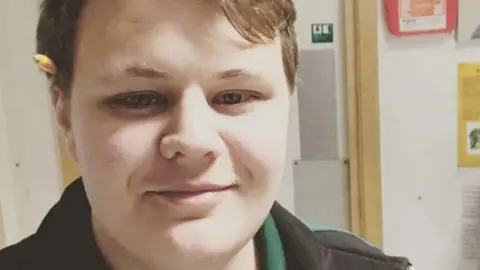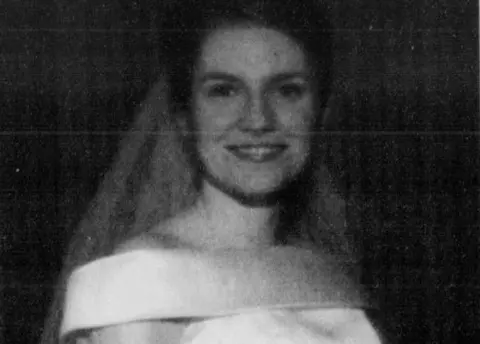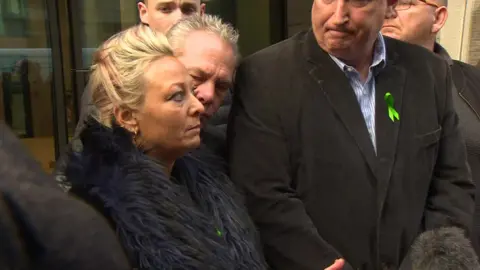Harry Dunn: Anne Sacoolas extradition chance 'very low', says PM
 Justice4Harry19
Justice4Harry19The chances of an American accused of killing motorcyclist Harry Dunn being extradited to the UK are "very low", the prime minister has said.
Mr Dunn, 19, died after being hit by a car allegedly driven by suspect Anne Sacoolas, who left the country for the US claiming diplomatic immunity.
The US had criticised the UK's request to extradite her.
Boris Johnson told the BBC the move was "right" and that the government would "make every effort that we can".
He said: "I think the chances of America actually responding by sending Anne Sacoolas to this country are very low.
"That's not what they do. But we will continue to make every effort that we can."
The Home Office submitted a request on Friday to extradite her to the UK.
Dunn family spokesman Radd Seiger said: "I do not know what is in the prime minister's mind in making those comments because the parents and I have not yet had the opportunity to sit down and talk with him but we expect to do so within the next few days.
"If he is basing those comments on what is currently emanating from Washington he may well be right.
"However, the extradition request has now been delivered and therefore the legal process has commenced - Mr Johnson's officials have been working extremely hard over the last few months to prepare a thorough and diligent case."
Mr Seiger said the family's campaign for justice would consider blocking US bases and other measures should the Trump administration refuse to return Mrs Sacoolas to the UK.
He said: "If that is what transpires, the campaign will swing into action deploying a number of measures, including blockading the bases, and we will sit down with British officials to discuss what they will do, not only on Harry's family's behalf, but the whole nation's to ensure that justice is done and that no one ever suffers the same fate as Harry."

Can Anne Sacoolas be extradited?
The extradition request is sent via the British Embassy to the US State Department.
A lawyer will then decide whether it falls under the dual-criminality treaty, where the alleged offence is a crime in both countries and carries a prison sentence of at least a year.
The maximum sentence for causing death by dangerous driving is 14 years' imprisonment, although this is usually reserved for the most serious cases.
The US may reject the request for extradition, arguing that Mrs Sacoolas is still entitled to diplomatic immunity.
 Aiken Standard Archive
Aiken Standard Archive
The crash happened outside RAF Croughton, where Mrs Sacoolas' husband Jonathan worked as an intelligence officer. Mr Dunn died after his motorbike was in collision with a car owned by Mrs Sacoolas.
The 42-year-old left the UK shortly after the crash on 27 August and returned to the US, prompting a justice campaign by the teenager's parents, Charlotte Charles and Tim Dunn.
Mrs Sacoolas was charged in December by the Crown Prosecution Service with causing death by dangerous driving and the Home Office submitted its extradition request to the US Department of Justice.
The US State Department said "a request to extradite an individual under these circumstances would be an abuse".

